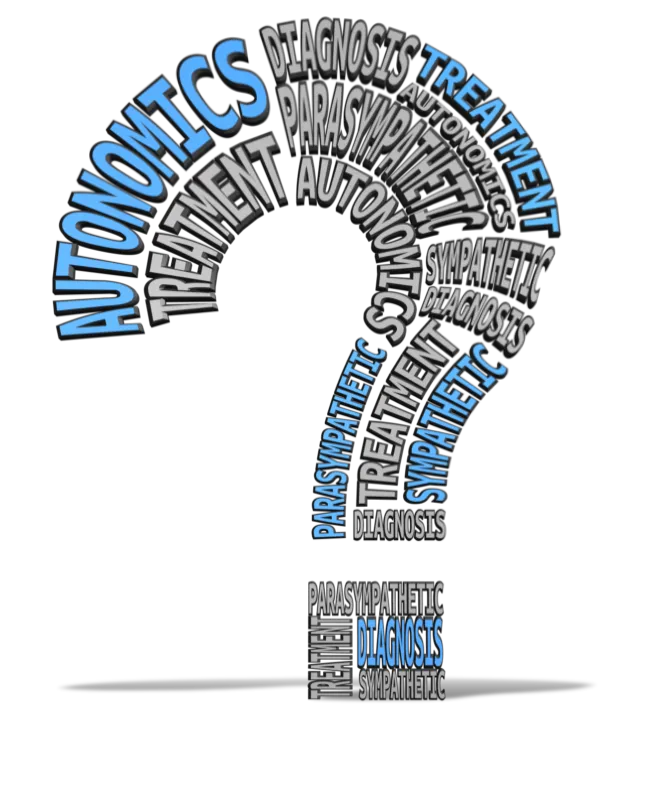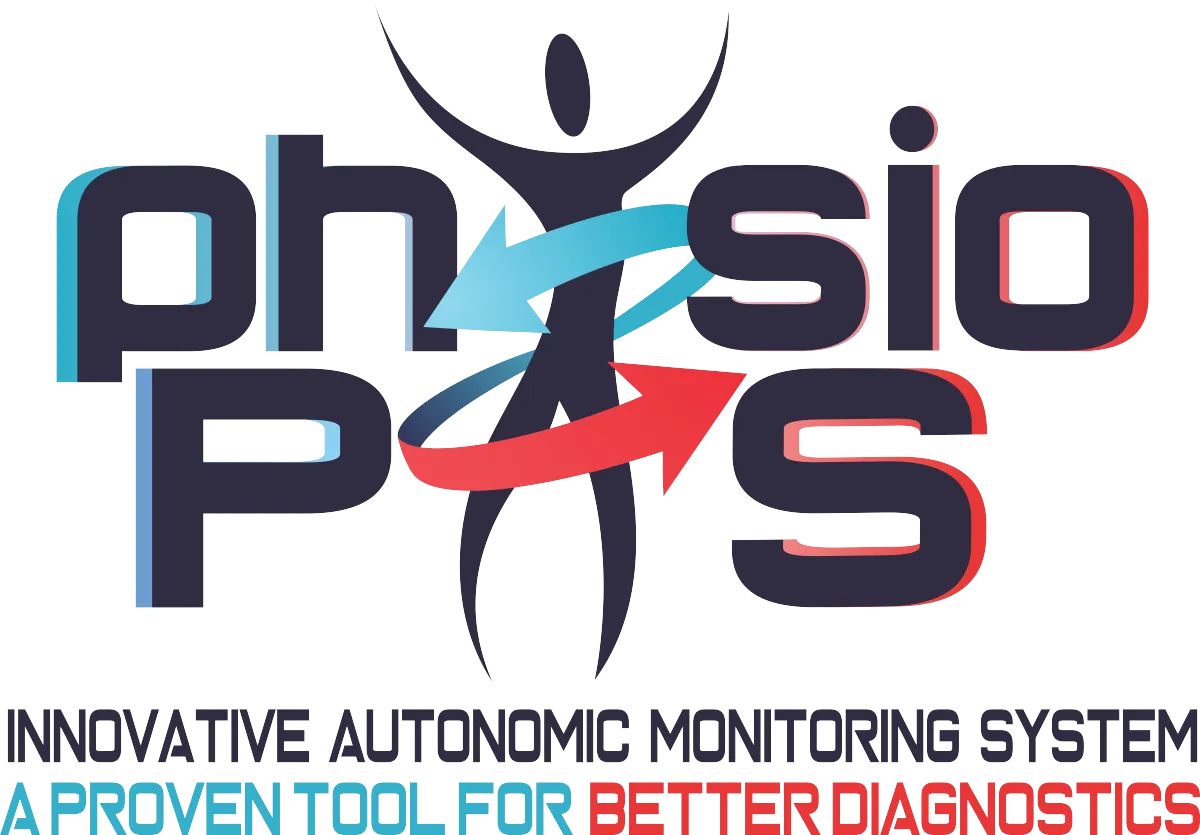Patient Resources

Understand Your Body’s Hidden Control System
Autonomic Nervous System (ANS) Testing with Physio PS
Every heartbeat, breath, and digestive process in your body happens automatically — all thanks to your autonomic nervous system (ANS).
When this system is out of balance, your body may send mixed signals that show up as symptoms like dizziness, fatigue, headaches, digestive problems, anxiety, or even heart issues.
Physio PS helps uncover those hidden imbalances — so you and your care team can find answers and restore wellness.
The Two Sides of Your Nervous System
Sympathetic Nervous System (SNS)
Often referred to as the "fight or flight" system, prepares your body to respond to stress or activity. It increases heart rate, opens airways, and directs blood flow to your muscles.
Parasympathetic Nervous System (PNS)
Known as the "rest and digest" system, helps your body relax, recover, and repair. It slows the heart rate, supports digestion, and promotes healing and sleep.
The Importance of Balance
Good health depends on balance between these two systems. Too much “fight or flight” or too little “rest and digest” can cause fatigue, brain fog, heart rhythm issues, or pain — often without any clear lab results to explain them.
What Is Autonomic Nervous System Testing?
ANS testing with Physio PS is a simple, 15-minute, non-invasive test that measures how well your body’s “automatic” systems are working.
Using advanced sensors (like a small ECG, blood pressure cuff, and heart rate monitor), Physio PS analyzes your parasympathetic and sympathetic activity independently and simultaneously — something no standard test can do.
This gives your healthcare provider a real-time look at how your body responds to stress, rest, and recovery.
Why It Matters
Traditional medical tests can miss early signs of nervous system imbalance. ANS testing helps identify dysfunction before symptoms become serious — giving your provider the information they need to:
Detect hidden causes of chronic fatigue, dizziness, or pain
Personalize treatments and medications
Prevent complications before they develop
Track recovery and progress over time
Support wellness and longevity

Conditions Linked to ANS Imbalance
Autonomic dysfunction can contribute to or worsen many conditions, including:
Chronic fatigue & brain fog
Heart disease and high blood pressure
Diabetes and metabolic disorders
Anxiety, depression, and PTSD
Long-COVID and immune dysfunction
Fibromyalgia and chronic pain
Digestive issues (IBS, GERD, gastroparesis)
POTS, syncope, and dizziness
Hormonal or thyroid imbalance
How Physio PS Helps
Physio PS gives your provider detailed insight into how your nervous system is functioning — so treatment can be tailored to you, not just your symptoms.
Personalized Care
Your provider can see if your symptoms are caused by overactive “fight or flight” signals or underactive “rest and digest” responses — and design treatments that bring you back into balance.
Preventive Insight
By monitoring changes in your autonomic balance over time, your healthcare team can catch early warning signs of chronic disease before symptoms start.
Whole-Body Wellness
The ANS connects every major system — cardiovascular, digestive, hormonal, neurological. Testing it helps your doctor understand your body as one integrated system.
Who Uses Physio PS Testing
Physio PS is trusted by:
Primary care physicians
Cardiologists
Neurologists
Chiropractors & physical therapists
Functional & integrative medicine providers
Endocrinologists
Researchers in hospitals and clinics globally
Patient Benefits
ANS monitoring helps you and your healthcare provider:
Understand the root cause of symptoms that “don’t show up” on traditional tests
Measure recovery and healing progress
Detect early signs of heart, brain, or metabolic dysfunction
Guide effective and safe treatment plans
Maintain balance for lasting wellness
A Caring Approach to Modern Medicine
At Physio PS, we believe better understanding leads to better care.
Our goal is to make invisible problems visible — so patients can find real answers, not just symptom management.
Whether you’re struggling with unexplained fatigue, anxiety, or chronic health issues, ANS testing can help your provider see what’s really going on — and guide you back toward balance and wellness.
Take the First Step Toward Clarity
You don’t have to live with uncertainty.
Talk to your healthcare provider about ANS testing with Physio PS or find a participating clinic near you.
How to Prepare for A Physio PS ANS Test
Patient should maintain their normal routine.
DO NOT DISCONTINUE OR CHANGE ANY MEDICATION OR THERAPY, unless expressly ordered by their physician.
Wear a two-piece outfit with loose fitting collar.
Refrain from wearing skin lotions, body powers, or body oils.
Do not have a significant meal within a half an hour of the Physio PS monitoring session.
Do not engage in a significant exercise period within one hour of the Physio PS monitoring session.
Do not wear jewelry or other objects with metal that is worn across the front of the chest.
Copyright 2026 Physio PS, Inc. All Rights Reserved.
The material and information provided by Physio PS is for general information purposes only. You should not rely upon this material or information for basis of making healthcare, treatment, or diagnosis decisions. While Physio PS strives to provide the most correct and up-to-date information and data, Physio PS makes no representations or warranties of any kind, expressed or implied, about the completeness, accuracy, reliability, suitability, or availability with respect to the information, products, services, or related graphics contained. Any reliance placed on such material is therefore strictly at your own risk. Reporting Information is supplied under license by NCRC LLC. * ‘RFa’ is known to be a measure of Parasympathetic activity and ‘LFa’ is known to be a measure of Sympathetic activity, based on reference: Colombo J, Arora RR, DePace NL, Vinik AI, Clinical Autonomic Dysfunction: Measurement, Indications, Therapies, and Outcomes. Springer Science + Business Media, New York, NY; 2014.


Facebook
Instagram
X
LinkedIn
Youtube